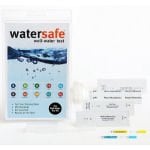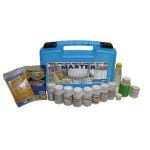Most people like to believe that raw sewage treated by the city will get discharged far, far away from the location where their drinking water comes from. A somewhat recent article posted in a Missouri publication described a real-life situation in Columbia, Missouri where elevated chloride levels in area wells indicated the likely infiltration of treated wastewater into the city’s water supply.
COLUMBIA — Be careful what you drink, because you might be drinking it again.
Chlorides are creeping into Columbia’s water supply wells in the Missouri River bottoms at McBaine, indicating that treated wastewater, once funneled far from the wells, is finding its way back into the city’s supply.
The chlorides themselves aren’t harmful, said Tom O’Connor, an environmental engineer who sits on the city’s Environment and Energy Commission as well as the Water and Light Advisory Board. Columbia’s drinking water currently meets all Environmental Protection Agency standards. However, the presence of chlorides does show that other potentially harmful contaminants, such as pharmaceuticals and other household chemicals, could stay circulating in the water supply. ( source )
If nothing else, the above information should tell anyone who gets their drinking water from a well that they need to test the water quality of their well water periodically.
Things to remember about well water:
+ Periods of heavy rainfall change water table levels and can affect the water quality in your well.
+ Periods of drought change water table levels and can affect the water quality in your well.
+ The addition of new wells to the area increases the demand for water and often changes water table levels.
+ Responsibility for the quality of water coming out of a well lies solely with the well owner.






